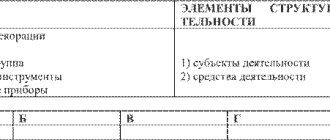Any society has developed certain moral standards. They are not enshrined anywhere at the legislative level, but are passed on by word of mouth or through special literature. There are no sanctions for failure to follow moral standards. The maximum that someone who fails to comply with them can run into is public censure.
good child
Don't blindly follow other people's opinions. Developed moral qualities are the basis for interacting with people and achieving success. Therefore, it is important to train them for both adults and children.
What are moral qualities
Moral qualities are closely related to the concepts of good and evil. Certain actions in a particular society are considered positive, others - negative. Any person should be able to take responsibility for his actions, and moral qualities are guidelines pointing to the direction in which to move and what should not be done.
Definition in psychology
Many definitions have been given to the concept of “moral qualities”. The most common of them sounds like this. Moral qualities are the totality of all characteristics that speak of a person as a conscious person. They are expressed in a person's actions and manners. By his behavior, outsiders can judge the presence or absence of specific character traits.
All these moral and ethical qualities are divided into three categories:
- Can. These are individual rights that do not conflict with either social norms or the values of a particular person. They don't harm other people, but they don't have to. For example, everyone has the right to manage their money as they wish.
- It is forbidden. These are actions that can cause negative emotions in strangers or even cause harm to them. Some of them are spelled out in the criminal code. An example of a rule from the “no” category - it is prohibited to manage other people’s money if the owner has not lent it or has not authorized it.
- Need to. These are rules that have social value, but are not important for the person himself.
Important ! Moral qualities can conflict with each other. For example, a doctor does not want to treat a murderer and rapist, but wants to do his job responsibly.
The moral qualities of a person are based on intellect, will and emotions. A person has to constantly solve ethical problems. The answer to how best to act is not always on the surface.
If a person does something unacceptable, he feels guilty, his conscience awakens when he does something wrong. This mechanism shows that these actions should not be performed in the future. Conscience is the emotional component of moral qualities.
Kind child loves a cat
Will is realized when a socially significant action has no value for the person himself.
Definition
Moral qualities are a set of character properties that reflects a person’s inner world and worldview, his judgments about norms of behavior, which to a certain extent helps to assess the level of his spiritual development. Moral qualities include a set of human virtues that are developed in the process of accumulating practical, life experience.
Under the influence of external and internal factors, the formation of behavior patterns encouraged in society occurs, which further determine the characteristics of the individual’s actions, including in personal relationships. The definition of a term in psychology presupposes the formation of a system of rules that regulate human activity within society. Distinctive signs of positive moral qualities:
- Unselfishness.
- Lack of pragmatism.
- Altruistic, selfless.
Moral qualities are such spiritual values that comprehensively characterize a person, personify his inner content, which allows us to draw conclusions about a person’s psychotype. High moral qualities distinguish generous, noble, truthful people. The formation of moral qualities is carried out under the influence of intellect, emotions, and will. They can be:
- Positive (justice, honor, dignity). Character traits that do not conflict with the internal beliefs of the individual.
- Encouraged (responsibility, sense of duty). They encourage an individual to take certain actions that are approved by society, regardless of the internal attitudes of the individual himself.
- Negative (envy, money-grubbing, hypocrisy, cynicism). They contradict generally accepted principles and cause personal hostility on the part of other members of society.
Often the moral qualities inherent in one individual come into conflict, forcing him to experience emotions and make difficult moral choices. An example of a conflict between the principles of morality and morality and a person’s inner beliefs can be the moral choice that faces a doctor who is forced to treat a criminal.
The doctor experiences personal hostility towards the patient who has broken the law and committed an offense, but is bound by official duties and ethical standards and is forced to provide medical care to everyone in need. A similar example can be given with the participation of a lawyer who defends a criminal in court, experiencing negative emotions in connection with the assessment of his actions.
Indicator of moral maturity of a person
Volitional personality traits - what is it in psychology, their formation
In everyday life, morality is synonymous with the concept of a “highly moral person.” To become like this, you need to become psychologically mature. Here are some criteria for a moral personality:
- Responsibility is a person’s ability to understand that his actions have consequences.
- Internal locus of control. A morally mature person will not shift responsibility to other people. Instead of looking for someone to blame, he will think about how to solve the problem or correct the mistakes he has made.
- Adequate self-esteem. Any moral person soberly assesses his strengths and weaknesses and acts based on them. He actively applies the former, and compensates for the latter or tries to correct it. A mature person will not lean to the other extreme - hyper-responsibility. Not everything depends on her, so she clearly distinguishes which situations were provoked and which happened by chance.
- The ability to reflect: analyze one’s thinking, actions and the situation in which a person finds himself. This allows you to draw conclusions and put them into practice.
- Willingness to be punished or experience the unpleasant consequences of one's actions. Lack of desire to run from problems caused by mistakes.
- The ability to predict the consequences of your actions before they are committed. For example, a person addicted to alcohol does not think about the consequences of his drinking. If he had thought about it seriously before he poured himself a drink, he might have been able to refrain.
Thus, moral maturity goes hand in hand with personal maturity. Its central concept is responsibility, which includes all the points described.
A good elephant is an example of morality
Important ! The formation of a highly moral personality is a long process that begins when a person is a preschooler. Kindergartens use different methods to develop intelligent individuals who will show respect for themselves and others. At school they teach social studies, where they talk about morality.
Landmark, position, principles
A moral guideline is the goals and prohibitions (existing in the mind) that a person uses as a model for constructing a line of behavior.
Those. a moral guideline represents a clear framework beyond which a person does not allow himself to go.
Moral position is an assessment of the norms of social behavior and their compliance. A person passes this assessment through an internal “filter”, realizing it and accepting it as a guide for his own actions. Moral position includes:
- behavioral motives,
- self-regulation and control of one’s own actions,
- conscientiousness,
- a sense of human dignity (from the position of a person who has chosen a certain moral position for himself).
Moral principles are the framework on which social and interpersonal relationships are built.
At the same time, it is fair to assert that moral principles are universal, support social foundations through an external mechanism of influence (public approval or censure of behavior patterns), and can be expressed in moral norms.
Types of moral qualities
Negative character traits - how to find and correct negative qualities
There are many classifications of types of moral qualities; if we summarize them, we get the following categories:
- Ethical. Norms that prescribe what is considered positive and what is considered negative.
- Moral. Rules of behavior based on love for one's neighbor. Although at first glance ethical and moral standards do not differ from each other, this is not entirely true. Even criminal gangs have their own ethics, which allow them to kill, steal and rape. But such actions are not moral, because they do not contain love for one’s neighbor. Also, there can be many ethics, but only one morality.
- Religious. These are moral qualities considered ideal in a particular religion. Previously, they were considered the main ones, and in a number of theocratic states they are included in legislation even now.
- Microgroups. These are norms accepted in a certain group. They can either be identical to the morality accepted in a certain territory, or be independent of it.
Libra is a common example of moral character.
Important ! This division is quite arbitrary. For example, the idea of what love for one's neighbor is varies from person to person. Religious beliefs are also based on morality.
Features of formation and types
Moral qualities are character traits that are formed in the process of a person’s theoretical thinking, contribute to his self-determination and the ability to adhere to an objective position, moving away from subjective assessment.
Moral qualities are personal attitudes that regulate the behavior of an individual within the framework of relationships with other members of society. The value system is based on feelings and emotions approved in society. What are the moral qualities:
- Mercy.
- Compassion.
- Sympathy, empathy.
- Self-esteem.
- Feelings of shame for committing negative actions.
One of the main regulators of an individual’s behavior is conscience – a sense of moral responsibility to other people and society as a whole for actions taken. The degree of manifestation of conscience reflects the level of an individual’s ability to independently determine moral duties and exercise moral self-control over their actions.
The formation of moral values occurs under the influence of many factors - upbringing, personal example of an authority figure, ethical standards preached in society. From childhood, an individual is instilled with the idea of positive behavioral models. The list of rules is almost limitless:
- Love your parents.
- Take care of elderly relatives.
- Do not take other people's things without asking.
- Don't lie.
- Do not offend the younger and weaker.
- Be loyal to the Motherland.
- Be obedient and hardworking.
The list of rules varies depending on the level of moral and spiritual development of the parents. In some cases (when the moral standards of the individual parent are deformed) it may contain attitudes that contradict generally accepted moral principles. When instilling moral values in a child, parents give examples that embody positive and negative behavior patterns.
Basic moral qualities
Qualities of a man - bad and good character traits, what to cultivate in yourself
The division of qualities into good and bad is only conditional. The same characteristic is considered useful or harmful depending on the situation. For example, prudence can develop into indecisiveness. Lack of conflict can develop into weak character. Thrifting can seem like stinginess. Pride develops into arrogance. In any case, there are a number of qualities that are considered positive or negative.
Positive character traits
A quality that helps a person live and benefits people is considered positive. Such high, worthy characteristics from a spiritual point of view are considered:
- Determination. The ability to make drastic changes in life, readily accepting the possible consequences.
- Courage. The quality with which a person can do something despite fear.
- Strength of will. The ability to resist momentary temptations in favor of a prosperous future.
- Generosity. When a person easily partes with his resources for the benefit of another. Although generosity is usually associated with money, there can be other resources, such as time. Sometimes the latter is valued even more by loved ones. In general, you can be generous in a broad and narrow sense.
- Determination. This quality is considered especially positive when a person and his immediate environment strive for the same results. Then he becomes a leader, thanks to him, all members of the group begin to live better. If goal-orientation is focused solely on one's own goals, it can be destructive because it does not take into account the interests of other people.
- Decency, honesty. This includes the lack of desire to hide something from your loved ones, openness to them.
- Empathy. The ability to sense another person's emotions and act on them.
All these positive qualities can play a cruel joke, both on the person himself and on other people. Therefore, it is important to remain flexible and adapt to the situation.
Negative qualities
By analogy with positive qualities, those personality traits that harm oneself and others are considered negative. Many of them are the opposite of positive aspects: squandering, indecisiveness, callousness, deceit and others. Here are some other negative qualities:
- Inappropriate careerism. The case when excessive determination has a negative impact on other people.
- Aggressiveness. When a person does not know how to competently redirect negative emotions, causing harm to others.
- Irresponsibility is the thoughtless commission of actions that obviously have negative consequences.
- Parasitism is when a person takes the resources of another person without giving anything in return.
- Corrupt practices.
Morality in modern society
h22,0,0,0,0—>
Some scientists believe that morality and ethics are contrary to animal human nature, excessively limiting it. But in fact, they are what define us as a civilized society .
p, blockquote9,0,0,0,0—>
Without morality, people would still live like animals, acting purely on instinct. The presence of morality indicates the existence of a mind that controls human behavior. And the presence of intelligence indicates the possibility of developing moral qualities.
p, blockquote10,0,0,0,0—>
The stumbling block is that moral requirements are always put forward by society, but whether to comply with them or not is up to the individual to decide, but his decision is greatly influenced by collective beliefs. Now there is a cult of freedom of choice . Everyone does what they want and lives the way they want. Therefore, the younger the generation, the lower their moral ideals, because nothing is required of them.
p, blockquote11,0,0,0,0—>
No, this does not say that morality must be hammered in with fists. It is enough to show the standard of morality that one would like to strive for, not because it is necessary, but because it is good, it makes the person himself and the people around him happy.
p, blockquote12,0,0,1,0—>
It is impossible to teach a child to respect elders if you yourself do not respect elders, and if you do not respect the child. Only if you bully him, which will eventually break his personality.
p, blockquote13,0,0,0,0—>
If every person thought about the moral education of himself, then the level of morality in society as a whole would increase many times over. But this is not profitable for most, because many people want to live solely to please themselves and their desires .
p, blockquote14,0,0,0,0—>
Ways to develop moral qualities
The development of any positive characteristic is based on the development of appropriate habits. The easiest way to start is with one good deed a day, even a small one. After some time, this will become a habit; helping people will begin automatically.
You can reward yourself for strong-willed victories. For example, if you managed not to show a negative quality, you can praise yourself and do good.
So, moral and ethical qualities are characteristics of a person that can be described through the concepts of good and evil. The same qualities may manifest themselves differently in different situations, but there is a certain set of characteristics that people consider predominantly positive or negative.
What are the standards?
Moral standards can be represented as a scale with two poles , one of which displays encouraged behavior patterns, and the other condemned.
Moral norms can be divided into two types: about what is permissible and what is unacceptable (about good and evil).
The concepts are opposite and mutually exclusive, which means that each norm has its own antipode.
This forces a person to take a stable position, since it is impossible to maintain neutrality in conditions of polarity (unless inaction is a conscious choice of a person who is ready to be condemned by others).
Psychological character of a person
Character is one of the components of the psychological portrait of a person. But it alone is not enough to form a full-fledged opinion about a person, which is necessary, for example, for hiring a responsible job or making an informed choice in your personal life.
Read also: Death Trail on Mount Huashan, China
At the same time, you need to determine the person’s temperament.
There are four in total
:
- sanguine
_ A person with a stable nervous system is quite mobile and balanced. The processes of excitation and inhibition of the nervous system quickly appear and also quickly decline. Optimistic, sociable. The downside is that they are capable of irresponsibility and frivolity. - choleric
_ A very mobile nervous system. It gets excited quickly, but cools down slowly. Extremely restless, always having to do something, energetic. Disadvantages: conflict-ridden, aggressive, hot-tempered. - phlegmatic
. The nervous system is very stable and balanced, but not dynamic. Cannot switch from one topic to another, does not work at “high speeds”. But the result will be impressive - everything is thought out to the smallest detail. Reliable, responsible. Disadvantages - clumsy, rather dry in communication. - melancholic
. The nervous system is very weak, vulnerable, impressionable. Soft, sensitive people. Cons: low performance, suspiciousness, isolation.
Individual abilities are considered as the third component within the psychological portrait
:
- general, formed under the influence of intelligence. This is mental flexibility, hard work, and the ability to adapt.
- special, appealing to a certain direction: to oneself personally, to communication, to completing a task.
To compile a psychological portrait, the following are also taken into account: intelligence, emotionality, feelings, communication skills, stress resistance, self-esteem.










